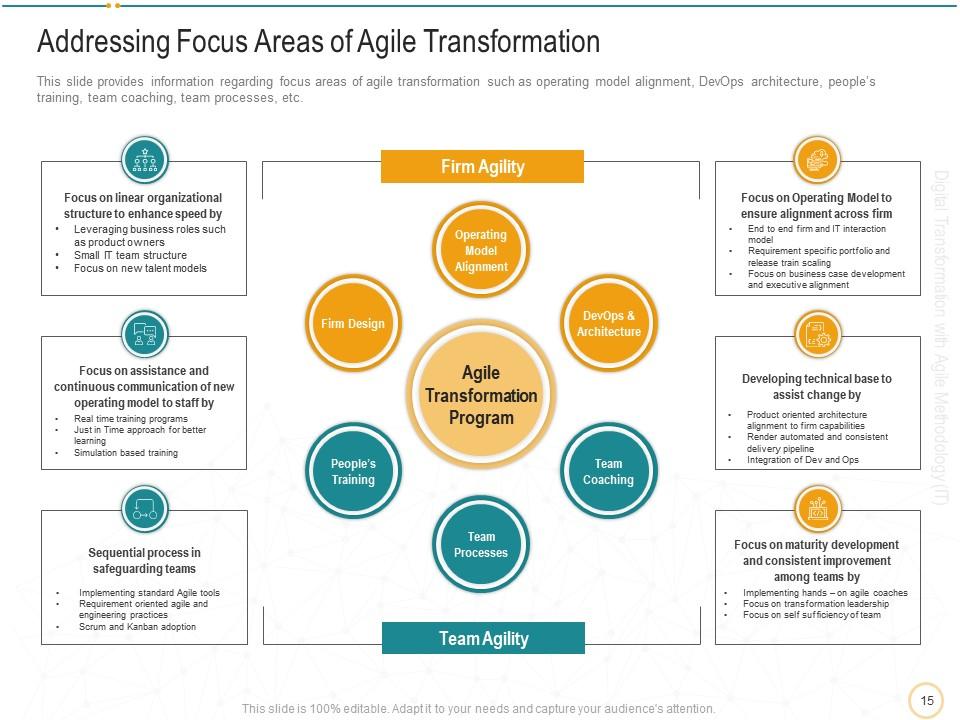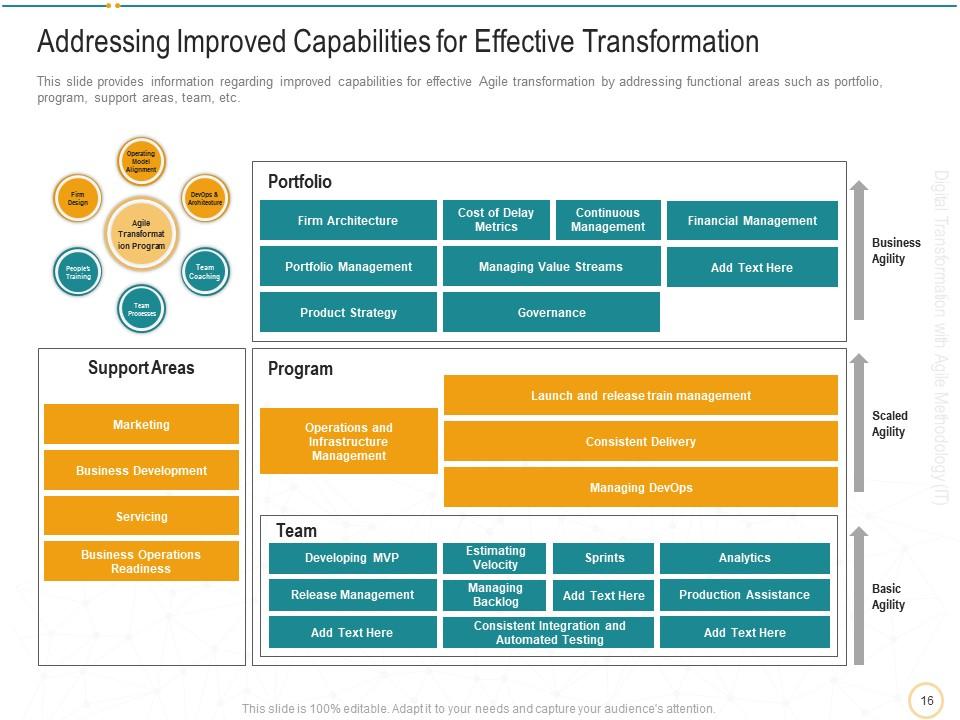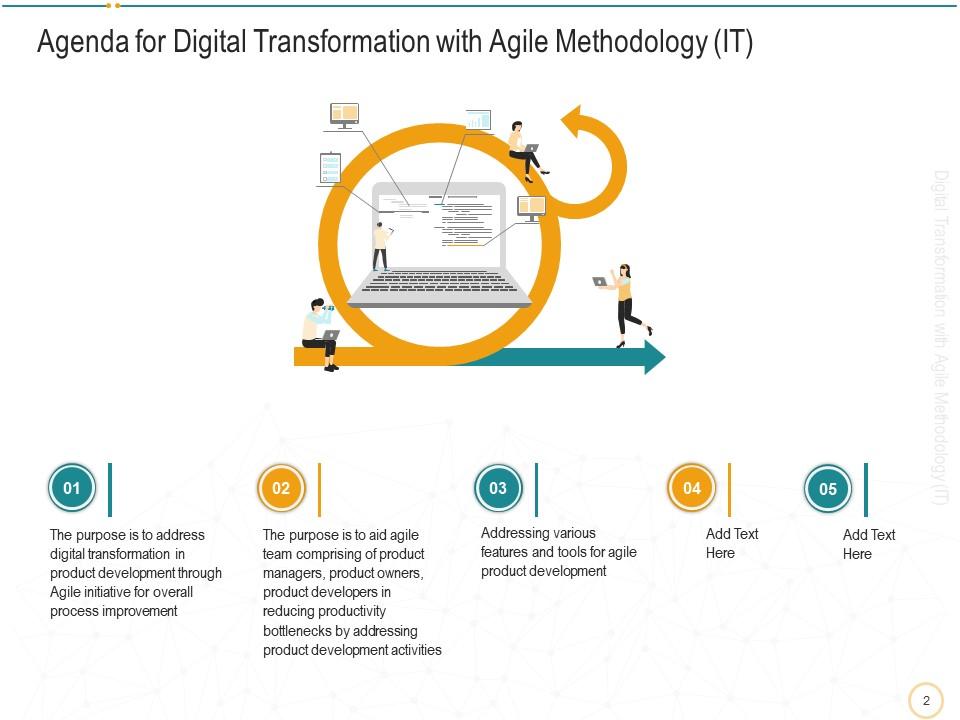Embark on a journey into the world of DigiLife Agile Digital Transformation Methodologies, where innovation meets efficiency, and digital evolution takes center stage. Explore the core principles, key components, implementation strategies, and more in this captivating exploration of modern business transformation.
Overview of DigiLife Agile Digital Transformation Methodologies
DigiLife Agile Digital Transformation Methodologies are based on the core principles of flexibility, collaboration, and continuous improvement. These methodologies focus on adapting to changing market dynamics and customer needs by prioritizing iterative development and quick feedback cycles.Unlike traditional approaches that follow a linear and sequential process, DigiLife Agile methodologies embrace change and promote a more dynamic and responsive way of working.
By breaking down projects into smaller increments and involving cross-functional teams, organizations can quickly adjust their strategies based on real-time data and feedback.
Successful Implementation in Various Industries
- Software Development: Companies in the tech industry have adopted DigiLife Agile methodologies to enhance their software development processes. By regularly collaborating with stakeholders and incorporating feedback, these organizations can deliver high-quality products faster.
- Marketing: Digital marketing teams have also benefited from Agile methodologies by optimizing their campaigns based on performance data and customer insights. This approach allows marketers to react swiftly to market trends and consumer behavior.
- Finance: Financial institutions have leveraged Agile methodologies to improve their service delivery and customer experience. By embracing a more flexible and iterative approach, these organizations can develop innovative solutions and stay ahead of the competition.
Key Components of DigiLife Agile Digital Transformation Methodologies

In the context of DigiLife Agile Digital Transformation Methodologies, several key components play a crucial role in driving the transformation process effectively.
Agile Framework
- The Agile framework forms the foundation of DigiLife methodologies, emphasizing iterative development, collaboration, and adaptability.
- It allows for quick responses to changing market conditions and customer needs, ensuring a more flexible approach to digital transformation.
Cross-Functional Teams
- Utilizing cross-functional teams brings together individuals with diverse skills and expertise to work towards common goals.
- These teams facilitate collaboration, innovation, and faster decision-making processes, essential for successful digital transformation.
Continuous Improvement
- Emphasizing continuous improvement ensures that the transformation process is not a one-time event but an ongoing journey towards digital excellence.
- Feedback mechanisms and data-driven insights help identify areas for enhancement and optimization, driving sustained growth and innovation.
Technology Integration
- Technology plays a pivotal role in enabling digital transformation, providing the tools and infrastructure necessary to modernize processes and enhance customer experiences.
- Integration of cutting-edge technologies such as AI, IoT, and cloud computing empowers organizations to stay competitive in the digital landscape.
Data Analytics
- Data analytics is seamlessly integrated into DigiLife methodologies to harness the power of data for informed decision-making and strategic planning.
- By leveraging data analytics tools and techniques, organizations can gain valuable insights, predict trends, and optimize operations for sustainable growth.
Implementation Strategies for DigiLife Agile Digital Transformation Methodologies
When implementing DigiLife Agile Digital Transformation Methodologies, organizations need to follow a structured approach to ensure successful adoption and integration. One key aspect of this process is change management, which plays a critical role in facilitating the transition to new methodologies.
Step-by-step Implementation Strategies
- Assess Current State: Begin by evaluating the organization's current digital landscape, identifying areas that need improvement or transformation.
- Set Clear Goals: Define specific goals and objectives that align with the organization's overall digital transformation strategy.
- Develop Agile Teams: Create cross-functional teams that are adaptable and capable of working collaboratively to drive digital initiatives forward.
- Implement Agile Practices: Introduce Agile methodologies such as Scrum or Kanban to enhance project management and execution processes.
- Continuous Monitoring and Adaptation: Regularly monitor progress, gather feedback, and be prepared to make adjustments to optimize outcomes.
Importance of Change Management
Change management is crucial during the implementation phase of DigiLife Agile Digital Transformation Methodologies as it helps to address resistance, foster employee engagement, and ensure successful adoption of new practices. By effectively managing change, organizations can mitigate risks and maximize the benefits of digital transformation.
Real-world Examples
Companies like Spotify, Amazon, and Airbnb have effectively implemented Agile methodologies in their digital transformation journeys. Spotify, for instance, uses Agile practices to continuously innovate and deliver value to its customers through iterative development cycles. Amazon leverages Agile principles to enhance customer experiences and drive innovation across its diverse range of services.
Airbnb embraces Agile methodologies to adapt to changing market demands and stay competitive in the ever-evolving sharing economy.
Benefits and Challenges of DigiLife Agile Digital Transformation Methodologies

Agile Digital Transformation Methodologies offer a range of benefits to organizations looking to adapt to the fast-paced digital landscape. However, they also come with their own set of challenges that need to be addressed for successful implementation.
Key Benefits of Adopting DigiLife Agile Digital Transformation Methodologies
- Increased Flexibility: Agile methodologies allow organizations to adapt quickly to changing market conditions and customer needs.
- Enhanced Collaboration: Agile promotes cross-functional teams and collaboration, leading to improved communication and innovation.
- Faster Time-to-Market: By breaking down projects into smaller, manageable chunks, Agile helps accelerate the delivery of products and services.
- Improved Customer Satisfaction: Agile focuses on delivering value to customers continuously, resulting in higher satisfaction levels.
- Better Risk Management: Agile encourages iterative development and feedback, reducing the risks associated with large-scale projects.
Common Challenges in Implementing DigiLife Agile Digital Transformation Methodologies
- Resistance to Change: Employees may resist adopting Agile practices due to a shift in roles and responsibilities.
- Lack of Executive Buy-In: Without support from top management, Agile initiatives may struggle to gain traction within an organization.
- Scalability Issues: Implementing Agile at the enterprise level can be challenging, especially in large organizations with complex processes.
- Resource Constraints: Agile requires dedicated teams and resources, which may be difficult to allocate in resource-constrained environments.
- Cultural Shift: Agile requires a cultural shift towards transparency, collaboration, and continuous improvement, which may be hard to achieve in traditional organizations.
Outcomes of Organizations Embracing DigiLife Agile Digital Transformation Methodologies
- Higher Productivity: Organizations that embrace Agile methodologies often see an increase in productivity due to streamlined processes and improved communication.
- Greater Innovation: Agile fosters a culture of innovation and experimentation, leading to the development of new ideas and solutions.
- Improved Customer Relations: By focusing on customer value and feedback, organizations can build stronger relationships with their customers.
- Competitive Advantage: Agile allows organizations to respond quickly to market changes, giving them a competitive edge over slower-moving competitors.
- Enhanced Employee Engagement: Agile empowers employees to take ownership of their work and encourages collaboration, leading to higher levels of engagement.
Final Thoughts

As we conclude our dive into DigiLife Agile Digital Transformation Methodologies, it's evident that the path to success lies in embracing innovative strategies and adapting to the digital landscape. With a focus on technology, data analytics, and change management, organizations can thrive in an ever-evolving business environment.








